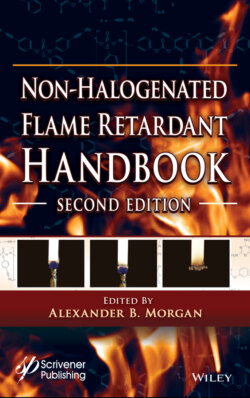Читать книгу Non-halogenated Flame Retardant Handbook - Группа авторов - Страница 26
1.5 Regulatory Outlook and Future Market Drivers
ОглавлениеBased upon current information as of the writing of this chapter, the regulatory outlook appears to have more regulations of flame retardants, not less, in the coming decade. There will be regional pushes for regulations of chemicals, with the EU continuing to push the most regulation via existing protocols (RoHS, WEEE) and newer broader chemical registration programs (REACH). The US will remain fragmented at the state level since federal regulations will continue to be delayed until such time as the US legislative branch writes and passes new regulations. Some US states will continue to promote bans on flame retardant chemicals by class, rather than by specific structure. Other countries are expected to maintain their regulations, and perhaps selectively strengthen them where there is national will to do so. Because of the emphasis on PBT for chemical use, polymeric and reactive flame retardant use is expected to grow, while small-molecule additives/non-reactive flame retardant use is expected to shrink in the coming decade. Issues with plastic waste and end-of-lifetime/sustainability issues may further push some flame retardants out of use if they can migrate out of the plastic, or, prevent recycling or clean disposal of said plastic waste. Vigilance by fire safety scientists and fire safety engineers is required to push back against regulations which weaken fire safety under the guise of improving environmental and personal health and safety, as the pollution damage from accidental fires far outweighs the pollution from using flame retardant chemicals. That being said, we can have improved fire safety and eliminate chemicals of concern – it does not need to be one or the other. The correct choice of material and fire protection solution can deliver both, and fire safety regulations do not need to be weakened, nor do all chemicals with potential flame retardant benefit need to be regulated out of existence.
